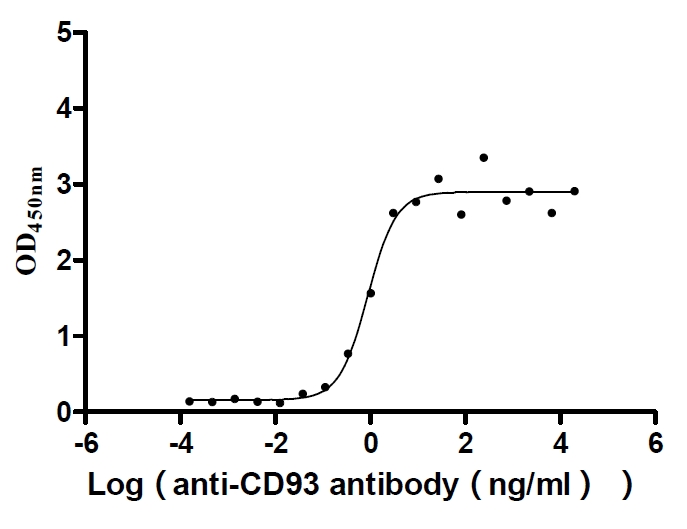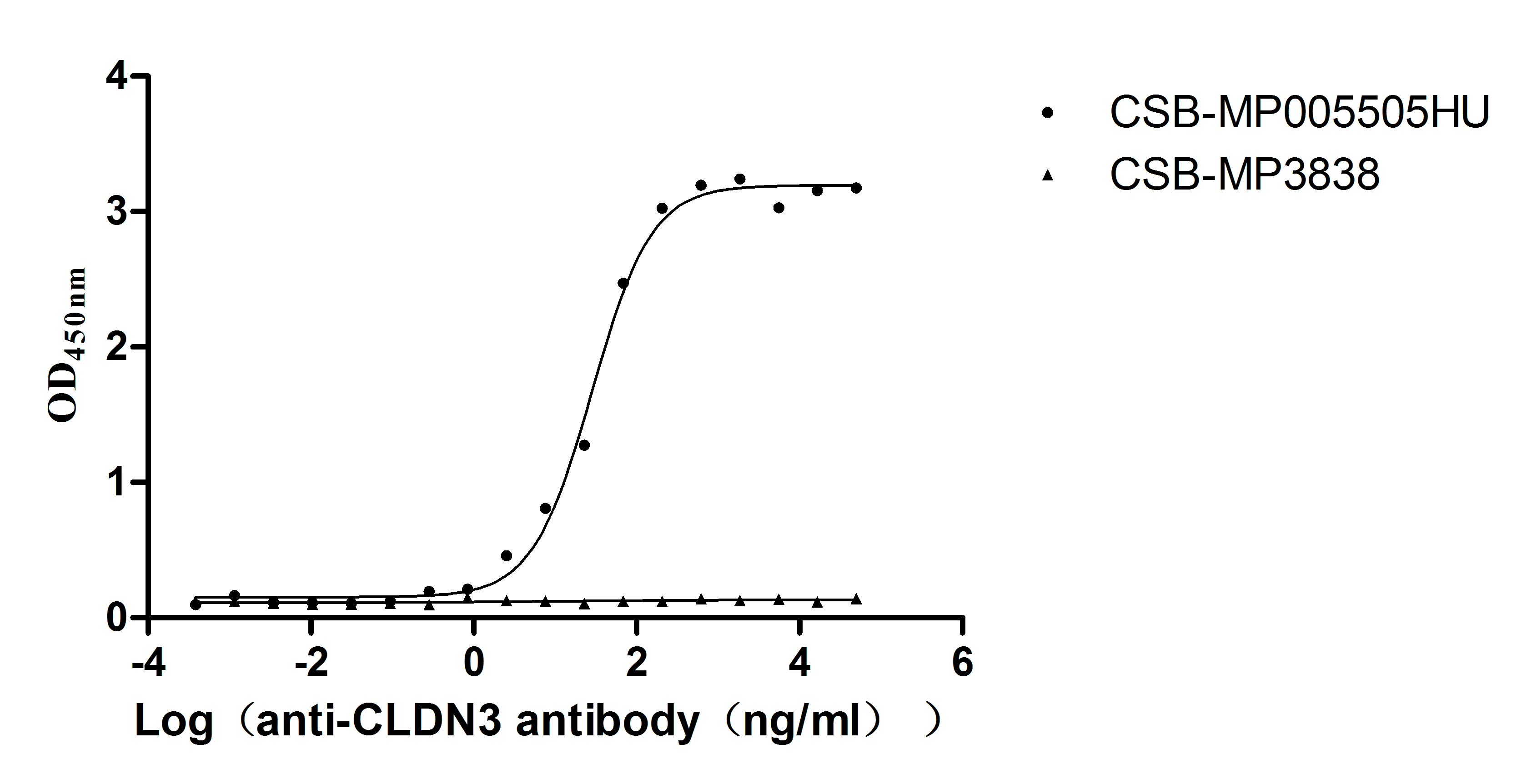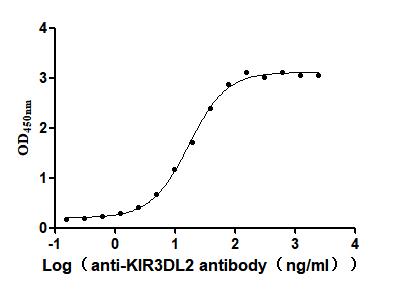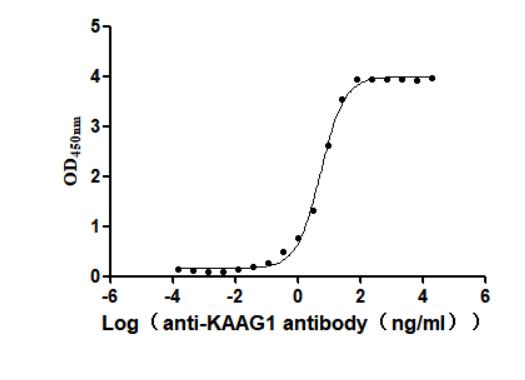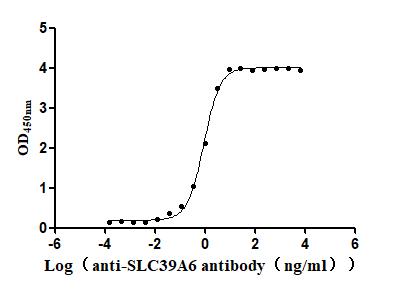Recombinant Human Peptidyl-prolyl cis-trans isomerase FKBP4 (FKBP4)
-
货号:CSB-YP008700HU
-
规格:
-
来源:Yeast
-
其他:
-
货号:CSB-EP008700HU
-
规格:
-
来源:E.coli
-
其他:
-
货号:CSB-EP008700HU-B
-
规格:
-
来源:E.coli
-
共轭:Avi-tag Biotinylated
E. coli biotin ligase (BirA) is highly specific in covalently attaching biotin to the 15 amino acid AviTag peptide. This recombinant protein was biotinylated in vivo by AviTag-BirA technology, which method is BriA catalyzes amide linkage between the biotin and the specific lysine of the AviTag.
-
其他:
-
货号:CSB-BP008700HU
-
规格:
-
来源:Baculovirus
-
其他:
-
货号:CSB-MP008700HU
-
规格:
-
来源:Mammalian cell
-
其他:
产品详情
-
纯度:>85% (SDS-PAGE)
-
基因名:
-
Uniprot No.:
-
别名:51 kDa FK506-binding protein; 52 kDa FK506 binding protein; 52 kDa FK506-binding protein; 52 kDa FKBP; 59 kDa immunophilin; FK506 binding protein 4; FK506-binding protein 4; FKBP 4; FKBP 52; FKBP 59; FKBP-4; FKBP-52; FKBP4; FKBP4_HUMAN; FKBP51; FKBP52 protein; FKBP59; HBI; Hsp 56; HSP binding immunophilin; HSP-binding immunophilin; Hsp56; Immunophilin FKBP52; N-terminally processed; p52; p59; p59 protein; Peptidyl prolyl cis trans isomerase; peptidyl-prolyl cis-trans isomerase; Peptidyl-prolyl cis-trans isomerase FKBP4; Peptidylprolyl cis trans isomerase; PPIase; PPIase FKBP4; Rotamase; T cell FK506 binding protein 59kD
-
种属:Homo sapiens (Human)
-
蛋白长度:Full length protein
-
表达区域:1-459
-
氨基酸序列MTAEEMKATE SGAQSAPLPM EGVDISPKQD EGVLKVIKRE GTGTEMPMIG DRVFVHYTGW LLDGTKFDSS LDRKDKFSFD LGKGEVIKAW DIAIATMKVG EVCHITCKPE YAYGSAGSPP KIPPNATLVF EVELFEFKGE DLTEEEDGGI IRRIQTRGEG YAKPNEGAIV EVALEGYYKD KLFDQRELRF EIGEGENLDL PYGLERAIQR MEKGEHSIVY LKPSYAFGSV GKEKFQIPPN AELKYELHLK SFEKAKESWE MNSEEKLEQS TIVKERGTVY FKEGKYKQAL LQYKKIVSWL EYESSFSNEE AQKAQALRLA SHLNLAMCHL KLQAFSAAIE SCNKALELDS NNEKGLFRRG EAHLAVNDFE LARADFQKVL QLYPNNKAAK TQLAVCQQRI RRQLAREKKL YANMFERLAE EENKAKAEAS SGDHPTDTEM KEEQKSNTAG SQSQVETEA
-
蛋白标签:Tag type will be determined during the manufacturing process.
The tag type will be determined during production process. If you have specified tag type, please tell us and we will develop the specified tag preferentially. -
产品提供形式:Lyophilized powder
Note: We will preferentially ship the format that we have in stock, however, if you have any special requirement for the format, please remark your requirement when placing the order, we will prepare according to your demand. -
复溶:We recommend that this vial be briefly centrifuged prior to opening to bring the contents to the bottom. Please reconstitute protein in deionized sterile water to a concentration of 0.1-1.0 mg/mL.We recommend to add 5-50% of glycerol (final concentration) and aliquot for long-term storage at -20℃/-80℃. Our default final concentration of glycerol is 50%. Customers could use it as reference.
-
储存条件:Store at -20°C/-80°C upon receipt, aliquoting is necessary for mutiple use. Avoid repeated freeze-thaw cycles.
-
保质期:The shelf life is related to many factors, storage state, buffer ingredients, storage temperature and the stability of the protein itself.
Generally, the shelf life of liquid form is 6 months at -20°C/-80°C. The shelf life of lyophilized form is 12 months at -20°C/-80°C. -
货期:Delivery time may differ from different purchasing way or location, please kindly consult your local distributors for specific delivery time.Note: All of our proteins are default shipped with normal blue ice packs, if you request to ship with dry ice, please communicate with us in advance and extra fees will be charged.
-
注意事项:Repeated freezing and thawing is not recommended. Store working aliquots at 4°C for up to one week.
-
Datasheet :Please contact us to get it.
相关产品
靶点详情
-
功能:Immunophilin protein with PPIase and co-chaperone activities. Component of steroid receptors heterocomplexes through interaction with heat-shock protein 90 (HSP90). May play a role in the intracellular trafficking of heterooligomeric forms of steroid hormone receptors between cytoplasm and nuclear compartments. The isomerase activity controls neuronal growth cones via regulation of TRPC1 channel opening. Acts also as a regulator of microtubule dynamics by inhibiting MAPT/TAU ability to promote microtubule assembly. May have a protective role against oxidative stress in mitochondria.
-
基因功能参考文献:
- ID4 selectively regulates AR activity through direct interaction with FKBP52. PMID: 28252832
- FKBP52 could be abnormally released from NFTs negative neurons in AD brains in correlation with the early pathologic Tau-D(421) neuronal accumulation. PMID: 27479154
- Mechanistically, USP49 deubiquitinates and stabilizes FKBP51, which in turn enhances PHLPP's capability to dephosphorylate AKT. PMID: 28363942
- Low expression of FKBP4 is associated with Progesterone Resistance in Endometriosis. PMID: 27778641
- Results provide a molecular mechanism by which FKBP52 modulates telomerase activity by promoting dynein-dynactin-dependent nuclear import of hTERT. PMID: 27503910
- The Hsp90-associated FKBP52 cochaperone has become increasingly associated with aberrant steroid hormone receptor signaling in disease. [review] PMID: 25986565
- The capacity FKBP52 to oligomerize Tau is not linked to its peptidyl-prolyl isomerase activity. PMID: 26903089
- FKBP52 and beta-catenin interact directly in vitro. FKBP52 promotes beta-catenin interaction with androgen receptor signaling. PMID: 26207810
- FKBP4 was not differentially expressed in PTSD patients with low HPA axis reactivity compared to PTSD patients with high HPA axis reactivity. PMID: 25745955
- FKBP51 is the major target accounting for the neuritotrophic effect of neuroimmunophilin ligands. Selectivity against the homolog FKBP52 is essential for optimal neuritotrophic efficacy. PMID: 25615537
- identify a novel steroid-responsive FKBP52-dependent pathway suppressing the expression and activity of tryptophan-2,3-dioxygenase PMID: 25132599
- FKBP52 seems to be disrupted in preeclampsia and intrauterine growth restriction pregnancies PMID: 26065228
- The biological action of NF-kappaB in different cell types could be positively regulated by a high FKBP52/FKBP51 expression ratio. PMID: 25104352
- Molecular chaperone activity and biological regulatory actions of the TPR-domain immunophilins FKBP51 and FKBP52 PMID: 24694367
- Despite their substantial structural similarity, in both the beta3 bulge and the beta4-beta5 loop, the FK1 domain of FKBP51 undergoes significantly populated conformational transitions that appear to be suppressed in FKBP52. PMID: 24749623
- FKBP52 appears to be an endogenous candidate that directly interacts with the pathogenic Tau-P301L and modulates its function in vitro and in vivo PMID: 24623856
- The guinea pig GR-specific mutations within the H1-H3 loop confer global changes within the GR-Hsp90 complex that favor FKBP51 repression over FKBP52 potentiation. PMID: 23686112
- FKBP4, p23, and Aha1 cooperatively regulate the progression of hAgo2 through the chaperone cycle. PMID: 23741051
- This study does not confirm a role for genetic variants in the SFRS3 and FKBP4 genes in the pathogenesis of corticosteroid-induced ocular hypertension. PMID: 22921020
- involved in the induction of decidualization PMID: 22279148
- FKBP52 expression level is abnormally low in frontal cortex of Alzheimer's disease compared to controls. PMID: 22233767
- Aimed to discover markers of drug resistance in breast cancer before neoadjuvant chemotherapy. Found FKBP4 and S100A9 might be putative prediction markers in discriminating the drug resistant group from the drug sensitive group of breast cancer patients. PMID: 22074005
- Transgenic overexpression of HSP56 does not result in cardiac hypertrophy nor protect from ischaemia/reperfusion injury. PMID: 20932935
- these results provide evidence that FKBP5 transcriptional dysregulation together with FKBP4 as its functional antagonist are implicated in biological features of major depressive disorder symptoms in human immunodeficiency virus-infected individuals. PMID: 20726698
- RET51/FKBP52 complex is involved in Parkinson disease. PMID: 20442138
- Data show that FKBP52, which is abundant in brain, binds directly and specifically to Tau, especially in its hyperphosphorylated form. PMID: 20133804
- activation of the Wnt pathway and mutation of the tcf-4 gene in hepatocellular carcinoma (HCC) PMID: 12603528
- Data show that FK506-binding protein 52(FKBP52) selectively potentiates hormone-dependent reporter gene activation, and this potentiation is readily blocked by co-expression of the closely related FKBP51. PMID: 12606580
- Promoter constructs with only 143 bp of upstream sequence contain a CAAT motif sequence and consensus binding sites for Sp1, heat-shock factor, and MYC-MAX. The sequence maintained high activity when transfected. PMID: 12782134
- FKBP52 is a component of the copper efflux machinery, and in so, may also promote neuroprotection from copper toxicity PMID: 15133031
- Data report the crystal structures of two overlapped fragments of FK506-binding protein 52 and the heterocomplex of glucocorticoid receptors with heat-shock proteins 90. PMID: 15159550
- FK506-binding proteins 51 and 52 differentially regulate dynein interaction and nuclear translocation of the glucocorticoid receptor PMID: 15591061
- FKBP52 is an AR folding factor that has critically important physiological roles in some male reproductive tissues PMID: 15831525
- results suggest that FKBP52 plays an important role in the regulation of TRPV5 and thus in the process of Ca(2+) reabsorption PMID: 16352746
- FKBP52 is an essential regulator of PR-A action in the uterus. PMID: 16873445
- FKBP52 may play a role in growth and development of male genitalia, since it is expressed in genital skin of prepubertal boys; however, alterations in the sequence and in expression of the FKBP4 gene are not a common cause of non-syndromic hypospadias. PMID: 17343741
- phosphorylation of the FK linker appears to be an important regulatory determinant of FKBP52-mediated potentiation of steroid receptor activity PMID: 17717070
- immunophilin ligands can protect neurons from Ca(2+)-induced cell death by modulating Ca(2+) channels and promote neurite outgrowth via FKBP52 binding PMID: 18162540
- Data show that the loss of FKBP52 encourages the growth of endometriotic lesions with increased inflammation, cell proliferation, and angiogenesis. PMID: 18988805
- Increased FKBP4 expression of correlated to HIV(+)major depressive disorder(MDD) but not to HIV without MDD PMID: 19199039
- knockdown of FKBP4 gene, coding for the immunophilin FKBP52, inhibited cortisol-activated glucocorticoid receptor nuclear translocation PMID: 19545546
- Resutls show that three of five autoantibodies, FKBP52, PPIA, and PRDX2, showed significantly increased reactivity in primary breast cancer and CIS compared with healthy controls. PMID: 19584157
- FKBP52 mediates stimulus-dependent TRPC1 gating through isomerization, which is required for chemotropic turning of neuronal growth cones to midline axon guidance of commissural interneurons in the developing spinal cord. PMID: 19945390
显示更多
收起更多
-
亚细胞定位:Cytoplasm, cytosol. Mitochondrion. Nucleus. Cytoplasm, cytoskeleton. Cell projection, axon.
-
组织特异性:Widely expressed.
-
数据库链接:
HGNC: 3720
OMIM: 600611
KEGG: hsa:2288
STRING: 9606.ENSP00000001008
UniGene: Hs.524183
Most popular with customers
-
Recombinant Human Signal transducer CD24 (CD24)-Nanoparticle (Active)
Express system: Mammalian cell
Species: Homo sapiens (Human)
-
Recombinant Human Claudin-6 (CLDN6)-VLPs (Active)
Express system: Mammalian cell
Species: Homo sapiens (Human)
-
Recombinant Human Complement component C1q receptor (CD93), partial (Active)
Express system: Mammalian cell
Species: Homo sapiens (Human)
-
Recombinant Human Claudin-3 (CLDN3)-VLPs (Active)
Express system: Mammalian cell
Species: Homo sapiens (Human)
-
Recombinant Human Killer cell immunoglobulin-like receptor 3DL2 (KIR3DL2), partial (Active)
Express system: Mammalian cell
Species: Homo sapiens (Human)
-
Recombinant Human Myosin regulatory light chain 12A (MYL12A) (Active)
Express system: E.coli
Species: Homo sapiens (Human)
-
Recombinant Human Kidney-associated antigen 1(KAAG1) (Active)
Express system: Baculovirus
Species: Homo sapiens (Human)
-
Recombinant Macaca fascicularis Zinc transporter ZIP6 isoform X1(SLC39A6),partial (Active)
Express system: Baculovirus
Species: Macaca fascicularis (Crab-eating macaque) (Cynomolgus monkey)


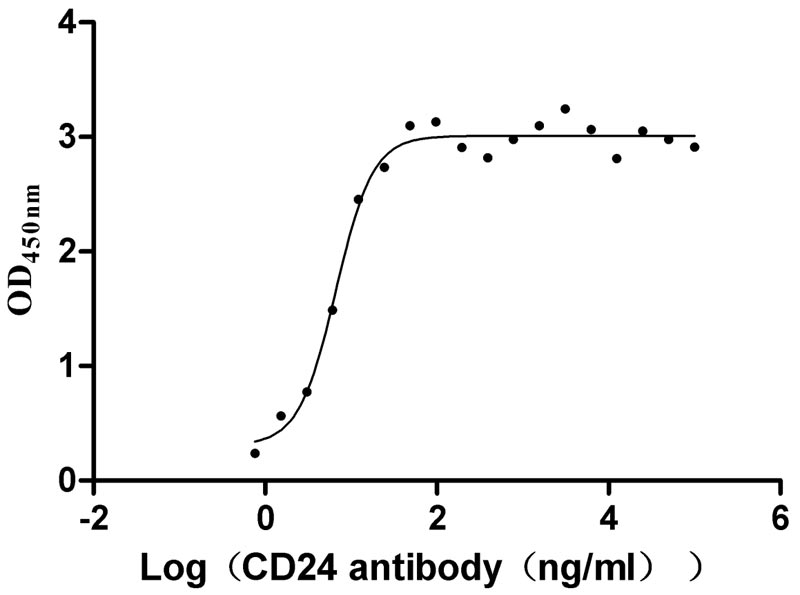
-AC1.jpg)
